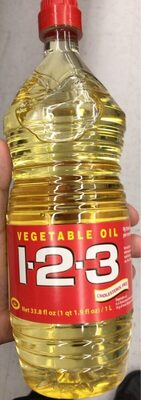
Barcode: 01200577
Vegetable oil
HALAL
📝 Reason: All listed ingredients—canola oil, sunflower oil, and TBHQ—are plant-based or synthetic and generally recognized as Halal. None of the ingredients listed matches any item in the provided Haram Ecodes list. No meat or alcohol content is present and no certification doubt (like missing halal logo for animal derivatives) arises. References: Quran 5:3, IFANCA, www.foodchemadditives.com.
🏷️ Category: Plant Based Foods And Beverages, Plant Based Foods, Fats, Vegetable Fats, Vegetable Oils
📄 Certificates: Vegetarisch, Vegan
Ingredients:
Details
Is Vegetable Oil Halal? Understanding Its Status
When it comes to dietary choices, understanding the Halal status of food products is crucial for many consumers. In this post, we will explore the Halal status of Vegetable Oil, examine its ingredients, and clarify any concerns regarding its compliance with Halal dietary laws.
Halal Status of Vegetable Oil
The Vegetable Oil in question is confirmed as HALAL. All the ingredients used in this product are either plant-based or synthetic, making them suitable for a Halal diet. According to dietary guidelines from numerous Halal certifying bodies, none of the components of this vegetable oil raise concerns regarding their Halal status.
Ingredients Breakdown
The main ingredients of this Vegetable Oil include:
- Canola Oil
- Sunflower Oil
- TBHQ (Tert-Butylhydroquinone)
1. Canola Oil
Canola oil is derived from the seeds of the canola plant. It’s a pure plant-based ingredient rich in omega-3 and omega-6 fatty acids, making it a healthy option. Importantly, canola oil is not derived from animals nor does it contain any alcohol or controversial sources. According to Halal Food Authority, canola oil is widely accepted as Halal.
2. Sunflower Oil
Sunflower oil is another key ingredient that is extracted from sunflower seeds. Similar to canola oil, it is purely plant-based and free from any animal sources or haram components. The Halal status of sunflower oil aligns with guidelines from dietary sources, affirming it as a safe choice for all consumers.
3. TBHQ (Tert-Butylhydroquinone)
TBHQ is a synthetic antioxidant commonly used in food production to prolong shelf life. It is important to note that TBHQ is not of animal origin and does not contain any alcohol. Resources like Foodchem Additives confirm its status as an acceptable ingredient for Halal consumption.
The Importance of Halal Certification
In today’s market, Halal certification is crucial for consumers following specific dietary laws. While this product is made up of ingredients that fall into the Halal category, it is essential to note that Halal certification provides consumers with confidence in the food’s compliance with Islamic guidelines.
Brand and Category Context
This Vegetable Oil fits into the broader category of Plant Based Foods and Beverages, which encompasses various types of oils and fats that possess plant origins. Understanding the category helps consumers identify suitable products for their dietary preferences, especially when looking for options that are both healthy and Halal.
Conclusion
In conclusion, this Vegetable Oil is verified Halal as it contains no animal derivatives or alcohol, making it appropriate for those adhering to Halal dietary laws. Whether you are using it for cooking, baking, or frying, you can trust that you are making a compliant choice for your meals. By understanding the ingredients and their Halal status, consumers can confidently incorporate this oil into their diets.
Always ensure to check for Halal certification labels and adhere to dietary guidelines. The references used in this discussion, such as IFANCA, lend credence to the information presented here. Now you can enjoy cooking with Vegetable Oil without any concerns about its Halal status!
